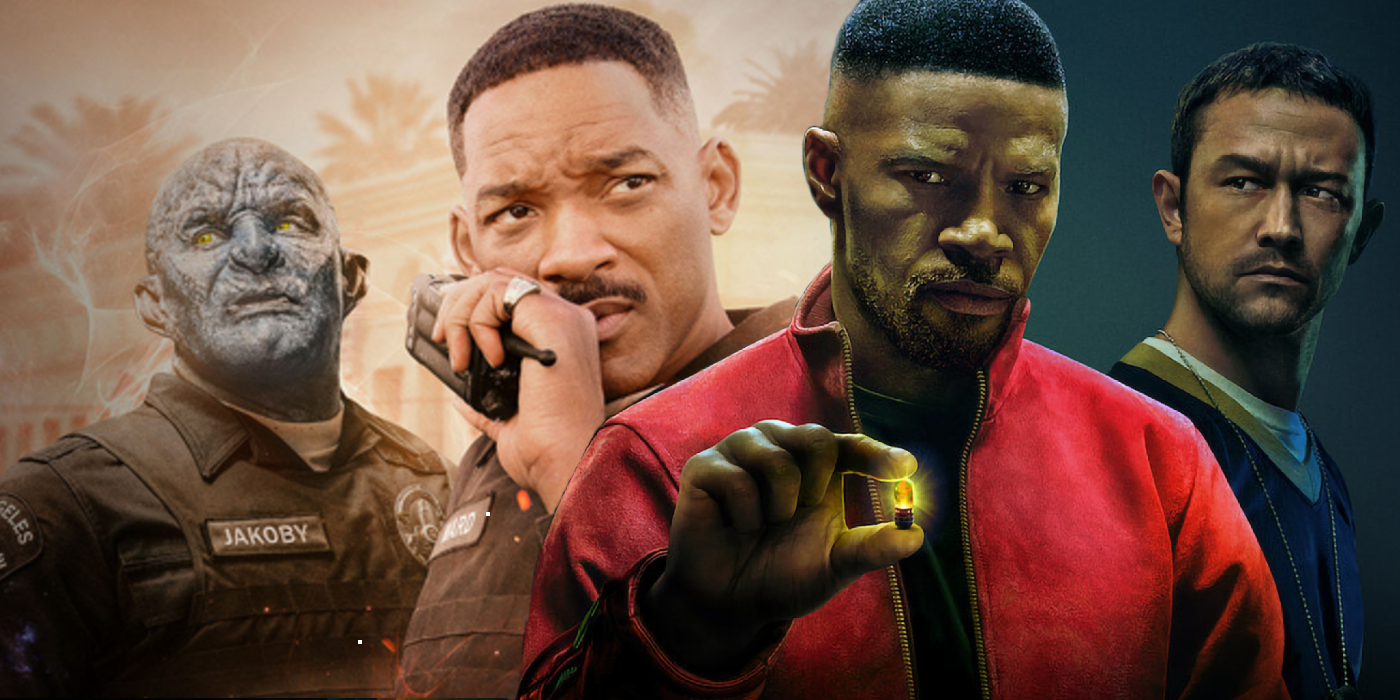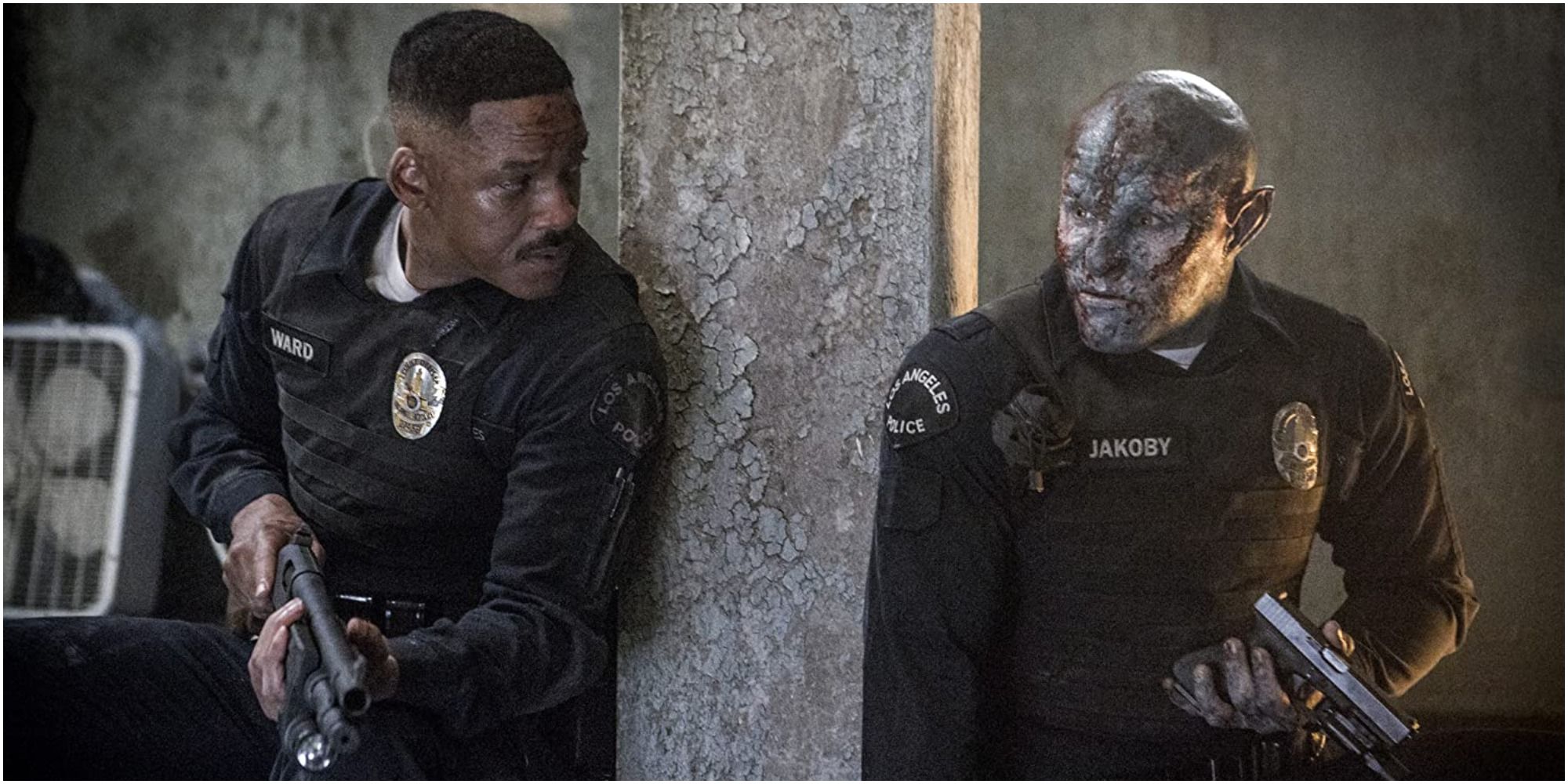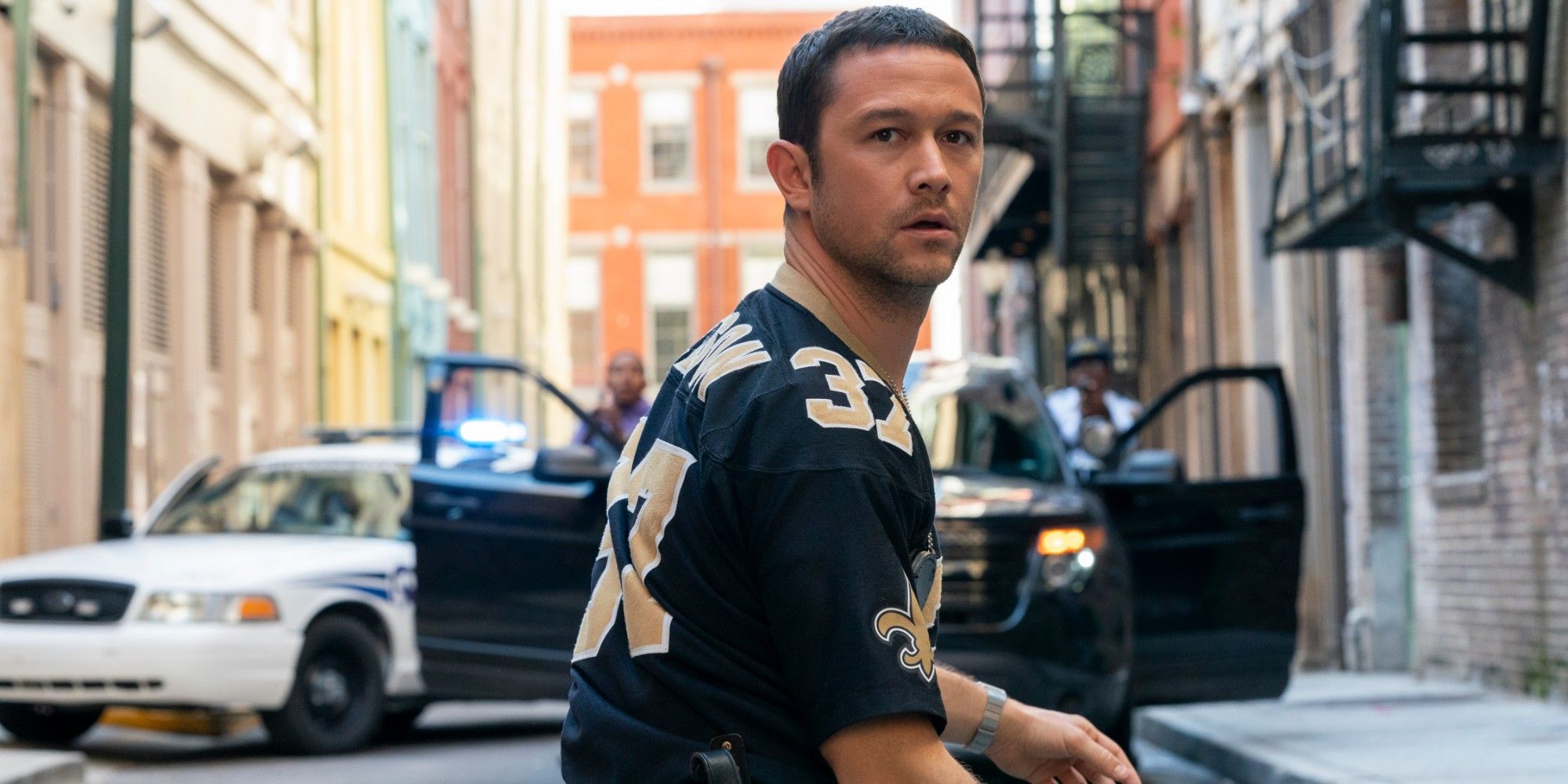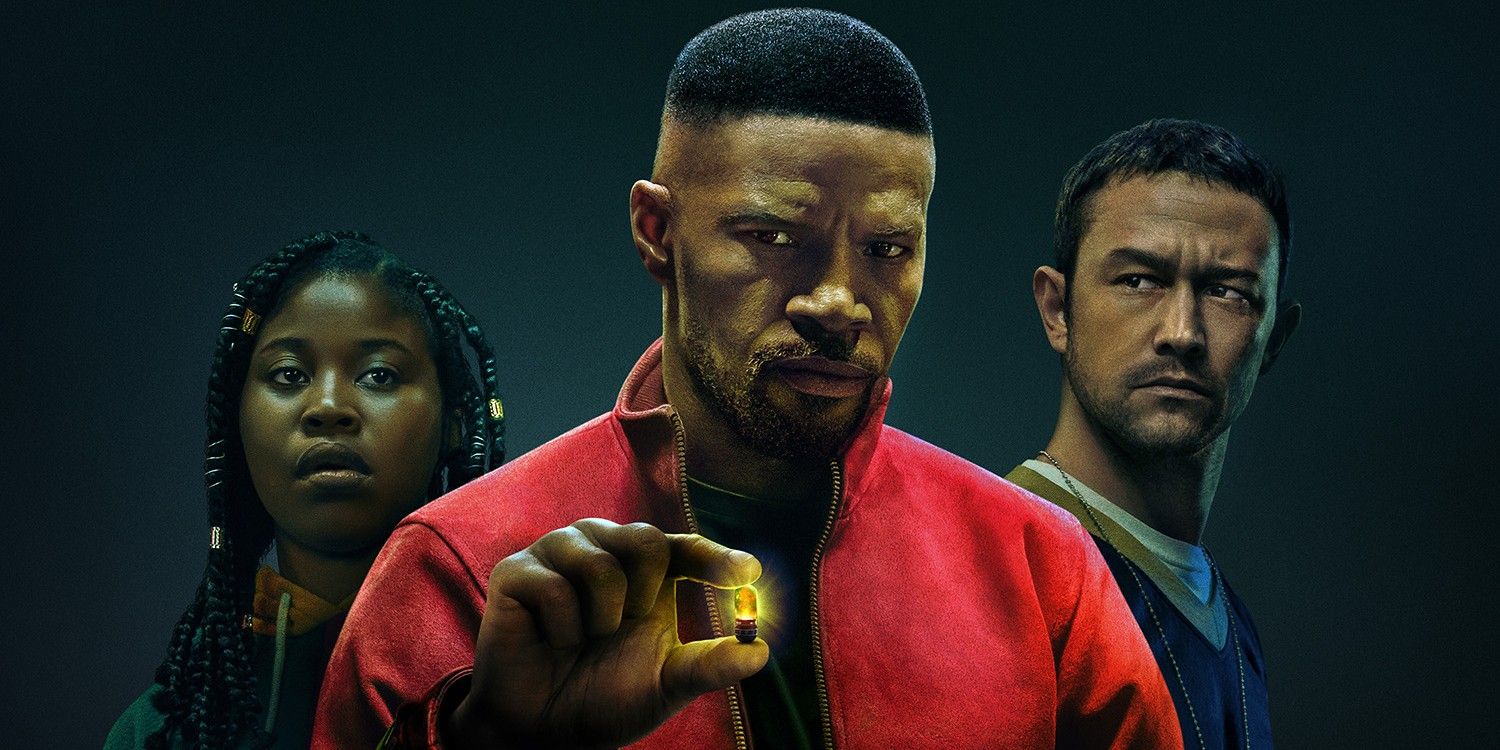
Netflix’s Project Power demonstrates the streaming platform’s improving film efforts when compared to its previous fantasy-infused cop drama, Bright. Both use the buddy cop structure to deliver stylized action with supernatural elements. They each also employ this genre-fusion to explore different themes and social issues through allegory. But while one tries to do too much, the other finds a better way to balance it all.
Bright came to Netflix in 2017 from director David Ayer (Suicide Squad, End of Watch) and screenwriter Max Landis (Chronicle, Dirk Gently's Holistic Detective Agency). It follows veteran LAPD officer Daryl Ward (Will Smith) and his new partner Nick Jakoby (Joel Edgerton), the country’s first orc cop. In this world, magic has mostly gone away but fantasy creatures such as elves, fairies, dragons and centaurs still live out otherwise ordinary modern lives. That is until the city’s multiple factions go to war over a powerful wand, putting Ward and Jakoby at the heart of an ancient prophecy that begins to play out.
Project Power released on Netflix August 14, 2020 from directors Henry Joost and Ariel Schulman (Nerve, Paranormal Activity 3 and 4) and screenwriter Mattson Tomlin (The Batman). It follows New Orleans detective Frank Shaver (Joseph Gordon-Levitt) as he tries to combat the rise of a new drug called “Power” that grants people their own individual superpower for five minutes at a time. Meanwhile, man-on-a-mission Art (Jamie Foxx) uses young dealer Robin Reilly (Dominique Fishback) to find the source of Power in his attempt to save his captive daughter. The three parties central to Project Power put aside their differences to fight against the corporate powers behind the dangerous drug and give Art and his daughter a new life.
Bright was one of Netflix’s first attempts at blockbuster and franchise filmmaking. It reportedly garnered high viewing-numbers but has yet to spawn any sequels or spin-off projects, despite David Ayer saying the project is in development. Nonetheless, Netflix has gone on to produce many high-profile action movies since but without the ambitious world or complex lore of Bright. With Project Power, they have come back around for another go, but this time mixing superheroes into the cop-drama-mix rather than magic. The question here is which of the two spiritually related movies is superior.

Both films fundamentally focus on two conflicting people trying to defend justice when powers beyond their control threaten the city. The difference is that while all of Project Power’s story relates to this, Bright is trying to do a lot more. Landis infamously wanted this to be his Star Wars, so his intent was to focus on both worldbuilding and mythmaking. Between attempts to explain the world’s history and set up an ongoing conflict based around a prophecy, Bright is much more than a buddy cop adventure. Project Power, on the other hand, keeps things much more simple and ultimately the film is better off for it. While it certainly has a lot of characters and backstory to explain, it is essentially set in the real world and everything supernatural comes from Teleio's Power pill. Thus, the movie can quickly drop the viewer into the action and spend more time trying to develop the character dynamics and showing off the superpowers rather than shoehorning in a lot of dense mythology with a genre that does not normally include it.

The dense mythology and fantasy elements also call into question why Bright is even a cop drama to begin with. The two genres seem like an odd pairing that never quite blend together since fantasy typically has big battles and high stakes while cop dramas generally focus more on personal matters and localized issues. However, a story about a superpower-granting drug does fit better with a police-based story. The difference between the two is that Bright wants to fit cops into an epic fantasy adventure, while Project Power seeks to fit superpowers into a crime action-thriller. One wants to combine two distinct genres while the other incorporates a single new element into a malleable story structure. Bright’s pieces are constantly at odds while Project Power feels something like Bad Boys with superpowers added in.

Underneath each film’s supernatural elements lies a deeper attempt at allegory. Bright uses the police’s treatment of fantasy creatures as a symbol for police brutality and institutional racism. Project Power uses the New Orleans setting and corporate drug experimentation to explore race and class power dynamics in the city still ravaged by Hurricane Katrina. Both concepts certainly fit within the parameters of a cop and crime drama and each feels particularly relevant at the point of each film’s release. However, yet again, Bright’s overstuff fantasy world leaves little room for this subtext, meaning all nuance is replaced with obvious dialogue and muddled messages.
Project Power is not that much better thanks to its extended action sequences and thin mystery-reveal structure taking up most of the space. Nonetheless, without an entirely new world to explore and a metaphor directly tied to its real-world location, the racial undertones feel more organic as the film deals with the interplay of different power structures and those caught in the middle. Bright’s social commentary is immediately obvious and clunky with Will Smith’s early line, “Fairy lives don’t matter today.” Project Power’s is only relatively more subtle, partly because the story barely pauses to give the allegory conscious space, but at least fills in the movie’s story rather than bloat it.

Even with a smaller budget and less-proven creative team, Project Power improves upon Bright in a lot of significant ways. The story is more refined, the allegory less insistent and over-stated, and the worldbuilding more organic. Ultimately, Project Power excels because of its simplicity, and Bright chokes on its own ambition.
Project Power is a cop drama first, which means its plot is basic and straight to the point. It is character-driven and allows the viewer to choose whether to take its story at face value or to look for deeper meanings. Bright, on the other hand, is hard to classify and tries to give equal time to its fantasy elements, buddy cop story, and heavy-handed commentary. Instead of a leading element or a cohesive mixture, they all seem to fight for attention, and all fall short. Neither is perfect, and both show that Netflix has a long way to go before it can truly compete with the major studios in blockbuster filmmaking, however, while delivering more frequently, Project Power leaves viewers wanting more in its ending rather than scratching their heads in confusion.
from ScreenRant - Feed https://ift.tt/34dYIdw

No comments: